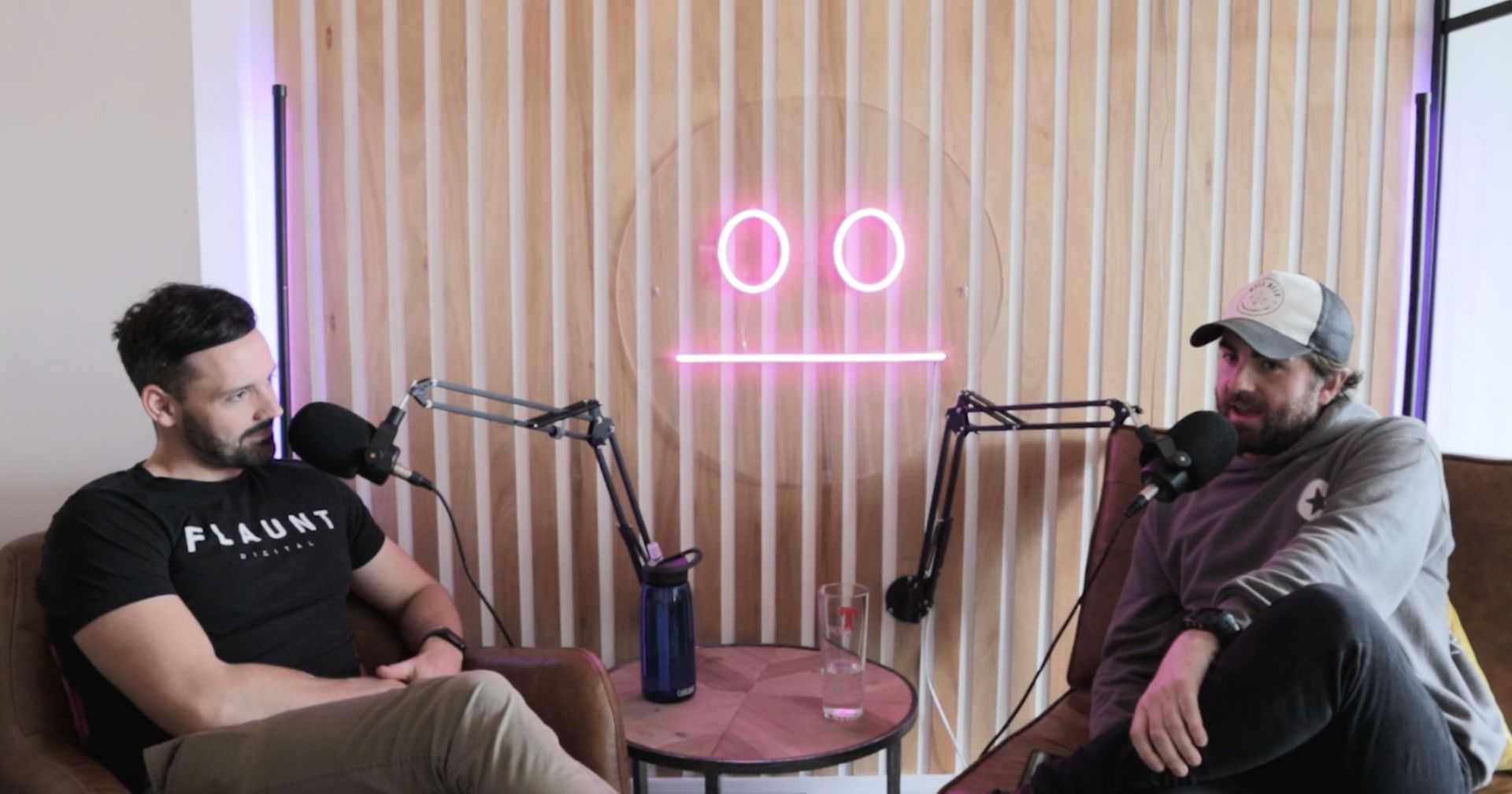resting pitch face episode 21: pre-pitch agreements
On Resting Pitch Face this week, we’re discussing Dan’s sleepless nights and his proposed pre-pitch agreements. How this might benefit both parties and whether brands and agencies would get on board.
Listen on Spotify or Apple Podcasts or subscribe to our YouTube channel for weekly episodes. See below for a full transcription of episode 9.
transcript
Dan: I couldn’t sleep the other night, any remedies? When I couldn’t sleep the other night, I was digging into our pitching conversations and pitching experience and came up with an idea and I would like to put the idea to you and see what you think.
Lee: This is the first time I’m hearing this idea?
Dan: Yeah, unless…
Lee: It’s an exclusive.
Dan: Unless you read my LinkedIn post today.
Lee: I don’t spend any time on LinkedIn.
Dan: So a pre-pitch agreement that is signed by both sides, agents and brand. So let’s test the scenario of an imbalance. Come to us. We’d like you to pitch. Has our RFP our brief we think yeah Bob on that and we turn around to the brand with a pre-written pre-pitch document agreement whatever we want to call it, both sides sign it.
We sign it, they sign it. And effectively all it really is is a management of expectations documented but signed, crucially signed off by both sides. So a really dumbed-down version could be two columns, first column on the left-hand side. Bruns What we expect to view and write on side agents is what we expect from you and bullet points on either side in terms of, as I’ve just said, what each side needs from the other side to actually go ahead, sign into this as a process from this point onwards and go and pitch to that brand.
So for example, we might ask brands to commit to a 30-minute conversation post-pitch to gather feedback rather than it being loose. And so often is the case, find out that we might not of one something want to get feedback and we never actually get that opportunity or it’s just a couple of lines on an email.
I think the process exists and lots of people are good at it but are better at it I think we’re on a big journey to get better at that pre-qualification if we call it that but what do you think about actually signing something at that sort of stage.
Lee: Could go one or two ways. It could either be a good thing that they’re signing off their intent by giving you that gesture of signing, or it could go the other way, be like, I don’t want to sign that.
Dan: Yeah.
Lee: And then the conversation and the communication maybe break down. I think maybe we’ve discussed this a little bit, I guess, around the pitching process, but may be an extension of what you’re talking about there. In my mind, I think could possibly be a good thing depending on the client is to agree a chargeable pitch that is not charged upon success.
Lee: So you agree the pitch process and you price it in the same way that you would perhaps a discovery phase because there’s an amount of work involved in putting the pitch together. Then if you’re not successful, you build for the time the pre-agreed price. But if you win the business that you’re pitching for, depending on what the scale of that is, you don’t charge for the pitch.
Dan: Do you not think that the same barriers could exist with that approach? So this one that I thought I’m suggesting could I’m really saying it potentially the strength of it being set within an inbound. We want you to pitch. So they’ve obviously hopefully seen something that they like about our agency. They were intrigued to hear you pitch for this piece of work.
Dan: We’re inviting you to pitch it. Surely the turnaround at that point of, yeah, we’d love to, but here’s how pitches go when you’re dealing with flop can either go exactly the way that you’re saying with a monetary value in the. But that’s going to turn some people off I’m sure. So I feel like it’s potentially a slightly softer yeah maybe a meet in the middle thing but interesting then I guess how would it work from if they come to you they come to us let’s say inbound we said this is great.
Dan: This is the process that we follow up from. I’d love you to sign in so that we all are on the same page. These are the commitments pre-pitch you’re in pitch after pitch feedback for example, as a good one after a pitch that I know we all struggle with. I don’t know how that would work from their expectations.
Dan: What you know then inputs into a document like that. Guess it has to be collaborative on it to an extent it kind of send our draft version over to them and see what they need from us.
Lee: I guess it comes down to what you’re trying to avoid by getting them to do that. So it makes sense. Like a lot of the time and situations, I’m sure we’ve all been in where a brand will use the process as a fact finding stage review kind of mission. Are you trying to avoid that by outlining the process and outlining the deliverables and setting people’s expectations?
Dan: I think so. I think it’s expectation of management and intent. I think the intent thing I mean, you tell me when I was thinking about this, I was like, what is it? Even worth the paper that it be written on in terms of, you know, getting a signature on it in Sarah feels to me more committed, more commitment.
So the intent but then I was thinking of this in other documents that we did today sign an NDA is for example our end is that I’m not going to say impossible because obviously the minute you sign something and something goes wrong, you can refer back to that document that signed and see if we can get to the bottom of the potential issue that an NDA covered.
Dan: But I mean kind of going off pace, but I guess documentation or NDA is kind of worth the paper that the written on and therefore we put in my idea in the same boat, if you know what I mean.
Lee: I mean, NDA is impossible. Obviously, they exist for that reason, but I think in the majority of circumstances where an NDA comes into it, it’s a step towards getting more comfortable in the feeling of trust in the person that you’re asking to sign and that that is on multiple levels. And although you may never have any intention of having to act on anything within an NDA.
Lee: Yeah, the principle and the psychology behind having then had that conversation, got someone to reciprocally sign an NDA. Yeah. Instils almost like an unspoken mutual trust that that conversation has been acknowledged.
Dan: Yeah.
Lee: And I think that potentially is the same thing as what you’re saying. I think perhaps if you did do the outline, the expectations, what you need to see from those kinds of things. And even if that goes across the table and they don’t read it, but they sign it, yeah, it’s an extra layer of intent having to have spent the time signing it. And also it gives the relationship perhaps an additional layer of trust.
Dan: Yeah. Do you think it would give off a vibe in that exact scenario that I said? So someone coming to us as an inbound common pitch and we said, we’ve got this pre-pitch agreement live, we call it. Do you think it gives off a vibe to the brand that this agency has got the shit together a lot of others like this is just.
Lee: I mean you could out now you could go down lots of routes with the concept of that. From a psychology standpoint, it’s like imagine if we got inbound inquiries or we had had like a handful of inbound inquiries come through at once. And then we went back to them all and said, And we’ve currently got a waiting list. Yeah, we’re being very selective about who we progress conversations with and that creates a feeling immediately of superior service and then also probably creates a little bit more of want from the person who’s put the inquiry in because they can just get at, yeah, yeah.
Lee: And if they’ve made an inquiry in the first instance, they’re obviously looking for or entering into thinking about need in the services that you provide. And it won’t just be a random email. So imagine then going back to someone and saying, We’ve got a waiting list and so we’re only pursuing conversations. We feel relevant with our brand and we feel like you’d be a good fit for us and we feel like we could deliver what you’re looking for, how that would then make them feel.
It’s almost like the same psychology behind forming the brief for the pitch process. Yeah.
Dan: And I think what all of the similarities between these different ideas and the shape in which they could arrive as part of this process is only all centred around driving, like you say, trust, intent. We’re on the same page. We would like to run this process the way that we would with your collaboration, but effectively trying to mitigate the shitty things that we’ve all experienced before during pitch processes that need a kick up the ass and a change.
And I do wonder, yeah, the psychology of putting something in place. I, it really resonates with me as, as potentially working, especially with inbound because you’re naturally in a better position where someone’s come want to say a better position, I mean a more in control position when someone comes to knock on your door to say, We’ve got to look at you, you need to see this brief.
We want your opinion. I mean, it went off on a wild goose chase. So when I started thinking about and is and whether they’re actually worth the paper that they’re written on, but let’s say what I’ve the idea that I’ve brought to the table is something that we pass on to the next inbound lead. Just so we had it in place.
Everyone signs, that pitch goes well and we get to that. I’m going to call it the dreaded Queen feedback stage. And let’s say in that document, wherever one signed, it’s a search, it’s a commitment to a 30-minute however you want to describe it, comprehensive, thorough feedback, video call. I guess what could happen if they don’t pull the weight there?
What can you do? What can you enforce? Really would there be stipulations in that? That’s the bit where I wonder whether it’s just.
Lee: You can’t force someone to jump on a hammer or have a meeting and I’ll jump on a call about feedback. It’s not that’s not possible, is it? But I think if they maybe have that upfront knowledge that that’s a part of the process, you’ve probably got more chance of that happening.
Dan: Yeah, I think that was where I was coming from with that idea. I think you’re absolutely right. It’s trying to build trust and gain trust, but critically for me, making sure everyone’s on the same page and before the pitch because it’s all well and good, it can be quite an exciting time. If I’ve got this brief to get out to the agencies, agencies receiving it, getting ahead of yourselves, let’s just get straight into it.
Whereas if you can slow it down and calm it down with a thorough bullet-pointed process that, as I say, I think exists out there, this was just formalized into a bit of an intro a bit of a document pre-qualification as well.
Lee: And yeah, as I think these ideas and that that very concept is almost been born out of the shift in the industry towards the value being placed on market and services. Whereas like ten years ago the agency model is outbound, outbound, outbound, outbound, outbound. And now I think if you had known for what you do as an agency and you are getting approached, then you do have more control over the process in general.
Lee: And I think that shift is happening. I think more importance, more representation in the boardroom for the market and more open communication holding on to value a little bit more as an agency? All these things are shifting the process a little.
Dan: I think we should try. I think if you’ve got enough pipeline quantity, I think it’s worth trying these things because we’re split ball in the psychological element, the I’m going to say the impossible element or not of these things but really interesting post out LinkedIn this morning and got a few nibbles of people saying I like it. Interestingly, if I’ve said to gas whether they were inside our agency side where they all also it’s yeah it doesn’t take a genius but it will be interesting to get brand feedback on that gauge what how they’d be responsive to a maybe a brand new steps to the process that they’re used to from a pitch management perspective.
I’m going to go with that were market and community that were. Yeah. So that is validation for what you said there about the shift in agencies’ approach to pitch in and an opinion of the pitch. And I think you could almost go completely for their end of the spectrum and say look right, we know we’ve got chops in these services.
You pitch to us, why do you want to be our client?
Dan: Yeah.
Lee: And then the confidence comes from us knowing that we can deliver an outcome for you. But why should we then work with you?
Dan: Really, If you dig into all of this, as we say, it’s because so many elements are so broken.
Lee: It’s just an in an industry that I think has had a way of doing things for so long that it’s almost like if it ain’t broke kind of mentality, but the practices were probably broken while they were happening.
Dan: Yeah, I think it’s been burned and it’s coming from an experience of being burnt by it. That’s why I’m lying in bed, not being able to sleep and thinking How can we refine for the benefit of those? And ultimately, this wasn’t just a self-centred idea. I can see it benefiting some brands that we’ve dealt with in the past and hopefully will in the future.
Dan: It’s not just we’re protecting ourselves here because it’s an I saw it as a mutual list, as obligations expectations so I think we should try it.





